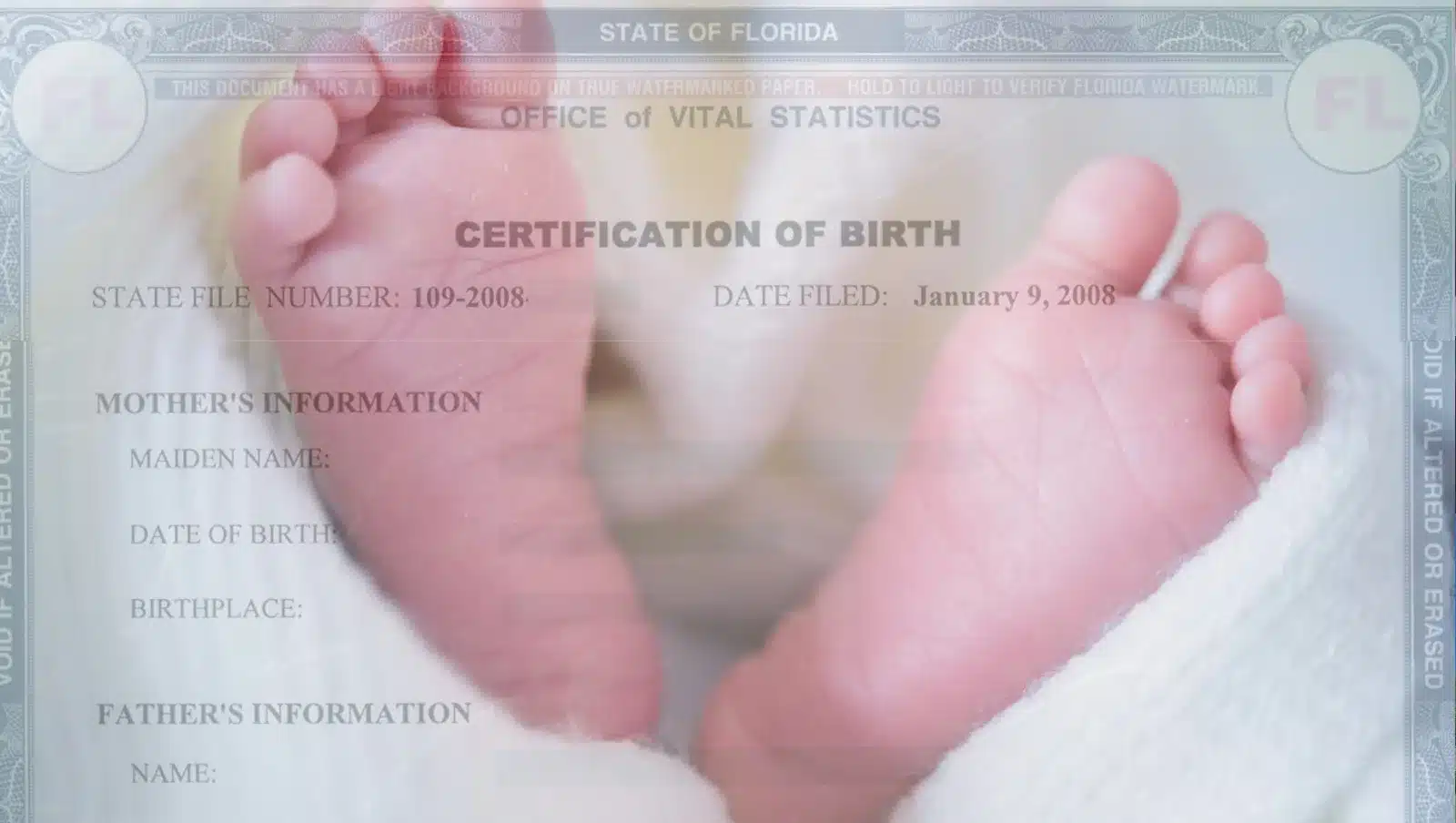If Both Parents Are on the Birth Certificate but Not Married, Who Has Custody?
Many people assume that being named on a birth certificate automatically grants equal parental rights, but that isn’t always the case under Florida law—especially for the biological father. Because of this, unmarried parents should educate themselves on the legalities of their situation, as either parent may need to take additional legal steps to secure their parental rights and ensure they have a say in major decisions regarding their child’s upbringing. Legal recognition as a parent, often established through court proceedings and being listed on the child’s birth certificate, is crucial for securing these rights.
Understanding how Florida handles custody and parental rights in these situations is essential for both parents, especially for fathers seeking to establish a legal and active role in their child’s life. Legal recognition through the child’s birth certificate and court processes is critical for participation in the child’s upbringing.
Introduction to Child Custody
Child custody is a fundamental issue for unmarried parents, and understanding how it works is essential to protect both parental rights and the well-being of the child, particularly in cases involving substance abuse. When parents are not married, custody laws can be more complex, and the default legal standing often differs from that of married couples. In most states, an unmarried mother is automatically granted sole legal custody of her child at birth, meaning she has the exclusive right to make important decisions about the child’s life, including healthcare, education, and general welfare.
In many jurisdictions, the mother’s automatic custody rights mean she can make decisions regarding the child’s welfare without a court order unless challenged by the father. “Physical custody” refers to where the child lives on a day-to-day basis, while “legal custody” involves the authority to make major decisions affecting the child’s upbringing.
For unmarried fathers, being involved in the child’s life requires taking legal steps to establish paternity. Without established paternity, the father does not have legal rights to custody or visitation. Understanding these distinctions is crucial for unmarried parents to navigate custody laws, gain legal rights, and protect the best interests of their child.
What Rights Does a Mother Have if the Parents Are Not Married?
Under Florida law, when a child is born to unmarried parents, the biological mother is presumed to have full legal and physical custody of the child, unless domestic violence is a concern. This remains true even if the father’s name appears on the birth certificate. As the natural guardian, the mother has sole authority to make decisions concerning the child’s healthcare, education, and general welfare unless and until a court determines otherwise.
Unmarried mothers are generally granted sole custody rights at the child’s birth and are recognized as the primary legal guardian unless a court intervenes. In practical terms, this means the mother has the right to determine where the child lives and how they are raised, considering the mental and physical health of both parents. The father must take additional legal steps to establish his rights. Paternity is not automatically established, and custody is not automatically shared when the parents are not married.
What Rights Does an Unmarried Father Have?
While having your name on a child’s birth certificate in Florida is significant, it does not give an unmarried father automatic legal rights. The biological father must establish paternity to become the child’s legal father and seek custody or visitation rights. According to Florida law, an unmarried father must legally establish paternity, typically through a court order or a paternity acknowledgment filed with the Florida Department of Health.
Once paternity is established, the father can petition the court for shared parental responsibility, a time-sharing schedule (visitation), and the right to participate in major decisions about the child’s upbringing. At that stage, the court may grant custody or visitation rights.
Until paternity is legally established, the father has no enforceable custody or visitation rights, regardless of his involvement in the child’s life or appearance on the birth certificate.
How Can a Father Establish Legal Paternity in Florida?
For unmarried fathers in Florida, establishing legal paternity is the first step in securing rights to custody, visitation, and parental decision-making. Without it, even being listed on the birth certificate does not grant enforceable rights.
Ways to establish paternity include:
- Voluntary Acknowledgment of Paternity (VAP): Signed by both parents at the hospital or later through the Florida Bureau of Vital Statistics.
- Court-Ordered DNA Testing: If paternity is disputed, the court may order genetic testing to confirm legal recognition.
- Paternity Petition: A father may file a paternity action in court to request parental rights, time-sharing, and decision-making authority.
Once paternity is established, the court can issue a parenting plan and time-sharing schedule outlining each parent’s rights and responsibilities, which may include joint legal custody. Establishing paternity not only protects the father’s rights but also benefits the child by ensuring access to emotional and financial support.
What Happens After Paternity Is Established?
Once legal paternity is confirmed in Florida, the next steps involve defining each parent’s rights and responsibilities, always guided by the child’s best interests. The court considers factors such as the child’s age, health, education, welfare, and the parents’ ability to provide a stable environment.
After paternity is confirmed, the court can:
- Grant shared parental responsibility (legal decision-making authority)
- Approve a time-sharing schedule (physical custody and visitation)
- Order child support from either or both parents
Florida courts aim to protect the child’s best interests, typically emphasizing frequent and continuing contact with both parents when it is safe and appropriate.
Joint Custody: What It Means for Unmarried Parents
Joint custody, also called shared parenting, allows both unmarried parents to play an active role in their child’s upbringing. This arrangement can involve joint legal custody—sharing decision-making authority—or joint physical custody, where the child spends significant time with each parent.
To establish joint custody, unmarried parents can work together to create a custody arrangement that reflects their child’s needs and their own ability to co-parent. Any joint custody agreement must be approved by the court to ensure it serves the child’s best interests.
Parenting Plans for Unmarried Parents
A parenting plan is a vital legal document for unmarried parents. It outlines the agreed-upon custody arrangement, how parenting time will be divided, and how decisions about the child’s upbringing will be made. A detailed plan helps create stability and reduces future disputes.
Parents should consider the child’s age, school schedule, and each parent’s work and living situations. Once finalized, the plan should be approved by the court to become enforceable.
Child Support Considerations for Unmarried Parents
Child support ensures that a child’s financial needs are met regardless of the parents’ marital status. In Florida, support is typically based on the non-custodial parent’s income, the number of children, and the amount of time each parent spends with the child.
Child support agreements must be approved by the court to become legally binding. Support orders can be modified with significant changes in circumstances, such as income or custody adjustments.
Emotional Impact on the Child
When parents are not married, custody disputes or changes in living arrangements can cause emotional stress for the child. Unmarried parents can help minimize these effects by maintaining open communication, cooperating on decisions, and prioritizing the child’s stability.
A predictable environment with supportive, engaged parents promotes the child’s emotional well-being.
Can a Mother Deny Visitation if the Father Is on the Birth Certificate?
Being listed on the birth certificate does not give a father enforceable visitation rights in Florida until paternity is legally established. The mother retains sole legal and physical custody until a court order is issued.
Once paternity and custody are established through the court, violating a custody or visitation order can have legal consequences.
What Does “Legal Custody” Mean in Florida?
In Florida, child custody law focuses on parental responsibility rather than possession. Florida no longer uses traditional terms like “custody” or “visitation,” but instead refers to:
- Parental Responsibility: The authority to make decisions about the child’s education, health, and welfare.
- Time-Sharing: The schedule that defines how much time each parent spends with the child.
Courts generally favor shared parental responsibility unless one parent is deemed unfit.
What Should Unmarried Parents Do if They Have Questions?
Unmarried parents in Florida face unique challenges when securing and exercising parental rights. Taking proactive legal steps early can prevent future issues.
- Fathers: Establish legal paternity as soon as possible to protect your right to be involved in your child’s life.
- Mothers: Understand that the father’s name on the birth certificate does not automatically grant him parental rights.
With proper legal guidance, unmarried parents can create a custody arrangement that prioritizes their child’s best interests and provides long-term stability.
Find Expert Legal Help for Unmarried Parents in Florida
At RTRLAW, we’ve helped hundreds of unmarried parents resolve complex custody, paternity, and child support issues across Florida. Our experienced family law attorneys are here to advocate for your parental rights and create a legal plan that works in the best interests of your child.
Whether you’re trying to gain custody, establish paternity, or create a time-sharing agreement, RTRLAW is ready to help.
Call 1-833-HIRE-RTR to schedule a safe & secure consultation today. Let us help you take the next step in protecting your family and your future.


 CALL US NOW
CALL US NOW TEXT US NOW
TEXT US NOW



























